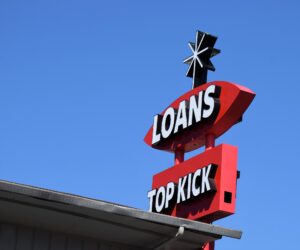
Debt Capital is the money a business borrows from banks, finance companies, and individuals with a specified payback time and interest rate. Debt capital is typically a less costly option than equity capital, as equity capital can weaken ownership rights. You can read more about Capital Structure Best Practices and calculate your company’s optimal capital structure.
Main types of debt capital: Secured and unsecured.
Secured debt capital is when a company agrees to pledge assets as collateral. This provides extra security for the lender in the event that the borrower fails to repay their loan within the agreed amount of time. The lender can then seize those assets and sell them to try and recover as much principal and interest as possible.
Unsecured debt capital is exactly that, unsecured. The borrower does not put up any collateral and if they default the lender has no assets to seize and sell. Interest rates for unsecured loans are typically higher to offset this additional risk.
Debt capital options:
Small Business Administration (SBA) Loans. The SBA doesn’t actually give loans to small businesses. Instead they guarantee loans issued by banks if a business meets certain qualifications. In the event the borrower defaults, the SBA will pay back the bank the balance due on the loan. SBA guaranteed loans are typically long-term with lower interest rates. These loans can be good for companies trying to fund a large purchase like equipment or grow their inventory levels.
Business Credit Cards. These credit cards typically have higher interest rates than a term loan. The available credit to the business is dependent on the company’s historical revenue and established credit history.
Equipment Financing. This is an example of secured debt financing, as it requires you put up the equipment you’re purchasing as collateral for the loan. These types of loans are easier to obtain and usually have lower interest rates. Some lenders may want to secure additional collateral such as your company’s receivables, inventory, or other equipment to “over collateralize” the loan if they perceive additional risks.
Merchant Cash Advances (MCA) Loans. Initially, MCA loans were based solely on historical credit card sales figures. A business would pledge some or all of their future credit card payments to the lender as the form of payback. Variations have developed over the years so that even small businesses that do not take credit cards can use this type of loan. These loans usually have much higher interest rates. The lender will automatically debit the business’ bank account for the agreed upon payment amount on a daily, weekly, or monthly basis.
Other types of debt instruments:
Debentures are debt instruments issued by companies to the general public. They pay fixed interest to the lenders and the principal amount is usually paid back after a specified period of time. Debentures can be secured or unsecured.
Convertible notes are a hybrid debt-equity instrument that start as a traditional loan with principal and interest payments but have the option to be converted to equity shares after a specified period of time.
Bonds are fixed income instruments issued by companies or governments to the general public. The annual interest rate is referred to as the coupon. Interest is usually paid every six months. Bonds can also be structured to pay interest monthly, quarterly, or annually.
I am always happy to assist clients in determining the best debt capital for their business. You can fill out the form on the Homepage, book some time on my calendar, or just give me a call at (843) 790-3661.

Growth funding and working capital structure is my passion. I’ve worked with a wide range of companies over the years from start-up to $30+ million. I’ve helped companies to scale quickly, take on new projects, or capitalize on recent opportunities. Business loans and asset-based facilities from $50k to $10MM.
– Brian Cate